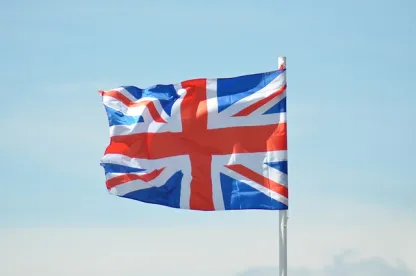The changes are designed to incentivise businesses to reduce their reliance on migrant workers.
On 3 November, the UK government announced changes to the UK immigration rules, implementing revisions that the Migration Advisory Committee previously recommended. The majority of such changes will take effect on 24 November 2016.
Tier 2
This category allows UK companies to sponsor non-European Economic Area (EEA) nationals to work in a skilled role in the United Kingdom. For some time, the government has been raising the requirements for sponsorship of such workers, and these new changes continue to develop that further. The main changes include the following:
-
The minimum salary threshold for Tier 2 (General) experienced workers will increase from £20,800 to £25,000 (the salary for “new entrants” has been held at £20,800).
-
A temporary exemption to the Tier 2 (General) minimum salary threshold will apply for nurses, medical radiographers, paramedics, and secondary school teachers in mathematics, physics, chemistry, computer science, and Mandarin until July 2019.
-
The minimum salary threshold for the Tier 2 Intra-Company Transfer (ICT) Short Term route will increase from £24,800 to £30,000.
-
The Tier 2 (ICT) Skills Transfer category will be closed to new applicants.
-
The minimum salary threshold for the Tier 2 (ICT) Graduate Trainee route will reduce to £23,000, and the number of certificates that may be issued per sponsor will increase from 5 to 20.
-
UK graduates who return overseas will be weighted more heavily in the monthly allocation process under the monthly Tier 2 (General) restricted limit.
-
Graduates sponsored in graduate training programmes in the United Kingdom will be able to change roles without their sponsor having to complete the Resident Labour Market Test or the individual having to make a new application.
-
Beginning April 2017, sponsors may rely on a milk round that ended up to four years prior to assigning a certificate of sponsorship but only if the worker was offered the job within six months of that milk round.
-
Tier 4 students will only be able to apply for further leave under Tier 2 (General) if they have studied at a UK-recognised body or body in receipt of public funding as a higher education institution.
The current exemption will not be removed from the Immigration Health Surcharge for Tier 2 ICT at this time, as previously indicated.
New Priority Change of Circumstance Request
The Home Office recently released a new priority service that allows Tier 2 and 5 A-rated sponsors to apply to have the following change of circumstance requests assessed within five working days for a fee of £200:
-
Adding or renewing certificate of sponsorship allocation requests
-
Replacing an authorising officer
-
Adding a new Level 1 user
This is clearly a welcome improvement to normal processing times of up to 18 weeks, and the Home Office has confirmed its intention to expand this offering shortly.
English Language Requirement
A new provision has been inserted into the immigration rules that requires all individuals who rely on a degree taught in English outside the United Kingdom to provide an original certificate from UK NARIC confirming that the qualification is at the appropriate level. It costs £158 to use this service, which is another example of the Home Office continuing to raise the bar by introducing additional costs for applicants.
Beginning 24 November, non-EEA partners, parents of British citizens, and those with no time limit on their stay in the United Kingdom will need to pass a speaking and listening test at Level A2 or above from Trinity College London or IELTS SELT Consortium when extending their stay in the United Kingdom. This will apply to all extension applications submitted on or after 1 May 2017, including those individuals who are already in the United Kingdom under these routes.
Those who make an initial application for entry to the United Kingdom under these routes are still only required to demonstrate that they are at Level A1. The government does not consider this an onerous requirement because those individuals who go on to apply for indefinite leave to remain must demonstrate that they are at Level B1.
This change aims to encourage better integration into British society, helping ensure that those who come to the United Kingdom with only basic English become more fluent over time.
28-Day Grace Period
Under the current immigration rules, applicants are expected to submit in-country extension applications before their existing visa expires. Their application will not be refused on the grounds that they are an overstayer provided that they submit the application within 28 days of their visa expiry. This 28-day grace period was originally introduced to ensure that applicants who had made an innocent mistake were not penalised. The 28-day grace period will now be abolished.
The Home Office will still accept an individual’s in-country extension application within 14 days of his or her visa expiry, as long as the delay was for good reason and beyond the applicant’s or his or her representative’s control.
In addition, applicants who submit an in-country application that is refused will now have only 14 days rather than 28 to submit a new application. This is seen as a somewhat confusing stance, and the Home Office has undertaken to provide further clarity in the policy guidance when published.
Conclusion
The changes are designed to influence employer behaviour by incentivising businesses to reduce their reliance on migrant workers. Further changes to the Immigration Rules are due in April 2017.




 />i
/>i
